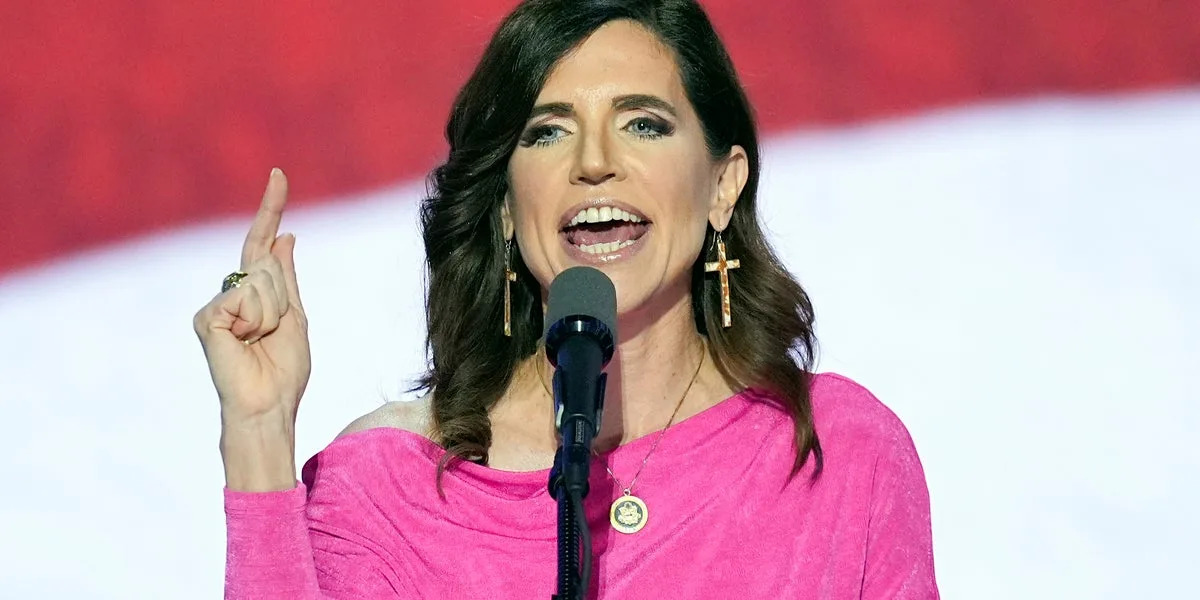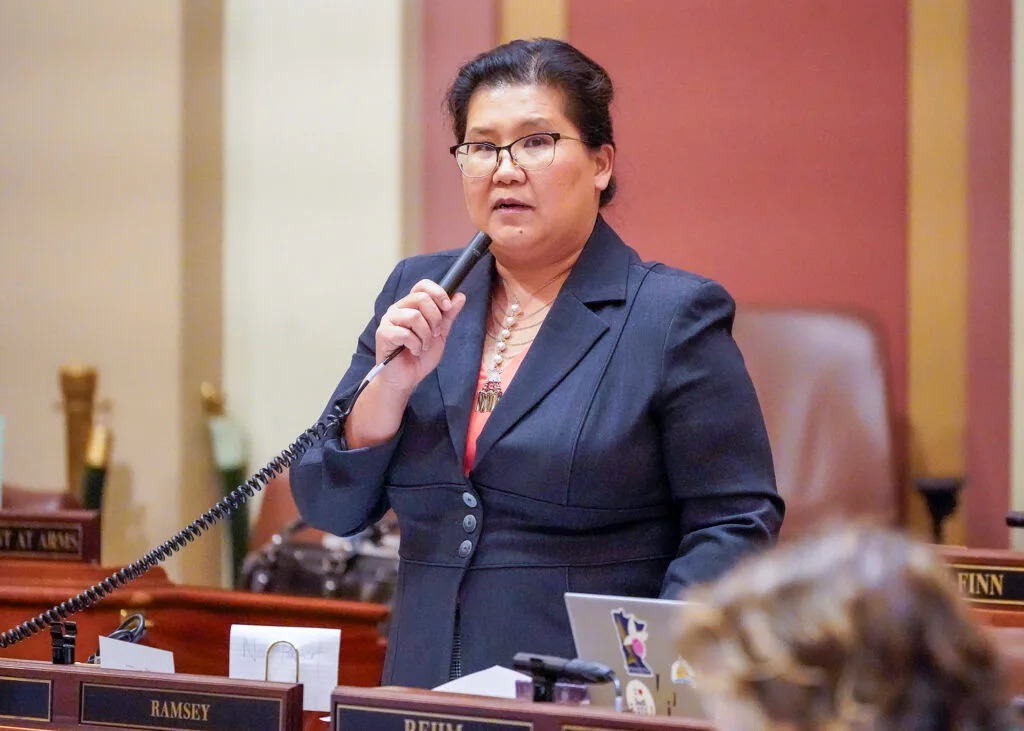
The GOP-dominated Nebraska Legislature this session poked and prodded for changes that would have weakened or reversed those ballot measures. (Zach Wendling/Nebraska Examiner)
LINCOLN — Every Nebraska worker was set to have paid sick leave starting this fall, because voters approved it through a citizen-led initiative.
That change was part of a wave of ballot measures Nebraska voters embraced in recent years, including the legalization of medical marijuana that left lawmakers and a newly created commission to craft the framework of how the new medicine would be regulated.
Voters also approved increasing the minimum wage and tied future annual pay bumps to inflation. And they rejected state funding to help pay some of the costs of students attending private K-12 schools.
But the officially nonpartisan, GOP-led Nebraska Legislature this session, often with gubernatorial support and the support of at least one Democrat, poked and prodded for changes that would have weakened or reversed those ballot measures.
Some lawmakers argued that they wanted to make those measures more “workable.” Others sought to reimplement the school voucher law voters rejected.
Different groups of lawmakers resisted each time, often filibustering or arguing against the changes. Many accused the legislative majorities of going against the “will of the people.”
A new GOP supermajority
Nebraska was one of several Republican-led legislatures nationally that sought to restrict or, in Missouri’s case, reverse ballot measures voters approved this year.
Majorities in Lincoln did so after having built a 33-member supermajority. With the new supermajority, conservatives could modify, weaken or repeal citizen initiatives without crossing the political aisle — if Republicans stayed in lockstep.
Nebraska’s GOP lawmakers and Democratic State Sen. Jane Raybold of Lincoln did so on paid sick leave, weakening the voter-approved law’s blanket requirements for sick leave and adding new restrictions.
Now employers will no longer be required to offer paid sick leave to young teens, ages 14 and 15, or to temporary workers, seasonal agricultural workers and workers at the state’s smallest businesses, those with 10 or fewer employees.
The larger majority also made the filibuster, a tactic long used in the Unicameral to stall or kill legislation that lacks consensus, less effective.
Some lawmakers, often Democrats, lamented that the statehouse had become less pragmatic, while Republicans blamed them for using the once-rare stall tactic too often to resist a different will of the voters, conservative lawmaking majorities the people elected.
Some Democrats said they were left little choice but to stall, as Republicans more frequently stuck together to pass their most controversial priorities.
On medical cannabis, lawmakers refused to establish a clearer framework of how the new laws should be implemented.
The majority tried to slow down voter-approved minimum wage increases but failed after one lawmaker missed the final round vote. That proposal is already set to be reconsidered next year. Supporters of the slowdown had argued businesses needed more predictable increases.
Throughout the session, worker advocates and union leaders spoke out against the proposed changes to citizen-led initiatives.

“I don’t understand how democratically elected senators can so easily go against these democratically supported initiatives,” said Sam Washburn, a student activist, in March.
One state senator, speaking privately, said during a last-ditch effort to slow the minimum wage increase that the statehouse is “not a serious place,” and that lawmakers are “not serious people.”
As the Legislature pushes back against voter-approved laws, lawmakers are also asking voters to consider letting them run for a third term in 2026 via a constitutional amendment.
Now, after the dust settles, both state parties will try to pick up seats by turning to the same voters. Republicans will try to gain more seats and strengthen their majority to the point that a handful of conservative holdouts would hold less sway. Democrats are trying to end the super majority and restore the filibuster’s strength.
The Never-Ending Culture War
The Nebraska Unicameral, while it isn’t as loud or larger-than-life as some statehouses, also had its culture war spats this spring — from talk of stopping the “elitist” class from promoting lab-grown meat and other foods they call unnatural to restricting what high school and college sports team transgender students can join.
The Legislature passed legislation that would require public school districts to adopt a policy so parents can see what materials are in school libraries, as book bans passed by school boards and states have drastically increased in recent years.
Nebraska also joined 26 states in having a law that restricts which sports teams transgender students can join. Transgenders people’s participation in sports has become a wedge issue in recent years. Fewer than 10 transgender students have filed to participate in middle school and high school sports in the state over the past decade, according to the Nebraska School Activities Association.
State Sen. Kathleen Kauth of the Millard area continued proposing bills that affect transgender Nebraskans. In 2023, her bill passed restricting gender care for some minors. That year, her bill and legislative resistance to it sidetracked the session, as State Sen. Machaela Cavanaugh of Omaha filibustered nearly every bill.
ACLU Nebraska Executive Director Mindy Rush Chipman said in a statement, “The constant targeting of LGBTQ+ Nebraskans must stop.”
Kauth, who had to limit her latest bill to high school and college sports to pass it this year, has said she would reintroduce a proposal to set similar sex-based legal restrictions on school bathrooms and locker rooms during next year’s legislative session.
“The work is not done,” Kauth said. “We’re going to continue.”
SUBSCRIBE: GET THE MORNING HEADLINES DELIVERED TO YOUR INBOX
The governor’s future
Gov. Jim Pillen claimed victory for the bill’s passage. He had identified Kauth’s sports restrictions bill as one of his priorities for the 2025 session.
Pillen, who announced his 2026 bid for reelection as the session wound down, achieved most of his legislative priorities, including a law against foreign agents, age verification for future social media accounts, the ban on lab-grown meat and a merger of the state’s agencies in charge of overseeing water quality and quantity.
But Pillen fell short a second straight year at convincing some Republican holdouts to support a proposal to alter how the state awards Electoral College votes for president to a winner-take-all system, which every state but Maine and Nebraska use.
President Donald Trump and campaign surrogates had expressed support for the change during his 2024 campaign, which some pundits thought might come down to the results in Nebraska’s Omaha-based 2nd Congressional District. In the end, former Vice President Kamala Harris won the “blue dot” in the Omaha area but lost Nebraska as a whole to Trump.
While the debate made national headlines, political observers had known the GOP holdouts for months. The bill’s sponsor, State Sen. Loren Lippincott of Central City, knew he was short votes. The governor still pressured lawmakers to debate the change.
The reason: Pillen might need Trump’s backing in 2026, as the Republican governor could face a GOP primary challenger with ties to Trump world. At worst, his team hopes to keep Trump from endorsing an opponent. It would like to earn the president’s backing.

Pillen might face questions about budget troubles slowing his momentum on his top priority, securing lasting property tax relief.
A handful of Republicans joined most Democrats to oppose Pillen-favored changes to the property tax code, including broadening the sales tax base to cover more of the costs of funding public education that is currently covered by local property taxpayers. Three times now, enough senators have balked at Pillen’s push to tax more goods and services to pay for property tax relief.
He also could face scrutiny for mishandling line-item vetoes to the state’s two-year budget.
“What happened with the delivery of the vetoes is not a problem with the budget,” said State Sen. Rob Clements of Elmwood, chair of the Appropriations Committee.”
Clements said the budget was put together well, but that a majority of lawmakers would have supported all of Pillen’s intended line-item vetoes. Some Democrats disagreed with that assessment.
A nation that needs help
Some state lawmakers, following the lead of cohorts in other states, tried and fell short at infusing more religion into public schools, testing the legal limits of the separation of church and state.
One proposal would have required displaying the Ten Commandments in every Nebraska elementary school classroom and in every middle or high school building. Another would have allowed school districts to employ unlicensed religious chaplains to counsel students.
Neither made it out of committee.
The lawmakers behind the bills say they aim to restore morality and character among Nebraska students, saying that they believe the nation needs help.
One of the four proposals, Legislative Bill 550, would have let K-12 students be excused during the school day for off-site religious instruction and coursework. That proposal was included in a broader education package that sidetracked the Education Committee for a month.
LB 550 was married to a proposal that would have given Nebraska teachers more paid time off around significant life events. It fell to a filibuster on the floor after lawmakers from both sides of the aisle expressed concerns about the logistical challenges of letting students leave.

Some who backed the deal have said that parents can already sign out their kids for any reason and that they do not see it as a state endorsement of religion. Critics argued it could open the door to more controversial educational religious bills, including vouchers for private K-12 education and display of the Ten Commandments.
“I think in any normal course of a session, a bill like LB 550 would be seen as a radical piece of legislation,” said State Sen. Megan Hunt of Omaha during the floor debate.
A “historically conservative” budget
Beyond the culture war battles, Lawmakers balanced the budget mostly by using the state’s “rainy day” cash reserve fund and a series of cash transfers and spending cuts to fill budget holes, a budget Pillen touted as “historically conservative.”
“I believe we are setting the Cornhusker State up for success,” Pillen said.
Some Democratic lawmakers compared the budget to “The Emperor’s New Clothes,” a fairy tale where the ruler is naked but his subjects pretend he has extravagant clothing. They questioned the math behind it.
Pillen, should he win reeelection, would face future budgets based on the limitations of the current one — less revenue than anticipated and increased spending over time — a budget already back in the red, facing a deficit of $95 million due to lower tax revenues.
A vocal, ever-changing group in the Legislature’s minority spent much of the session filibustering. They lost most fights but scored a few wins.
State Sen. George Dungan of Lincoln expressed pride that they had blocked the proposal that would have slowed the state’s voter-approved minimum wage increases, for now.
“I’m glad that we were at least able to fight for everyday working Nebraskan,” Dungan said.








Comments